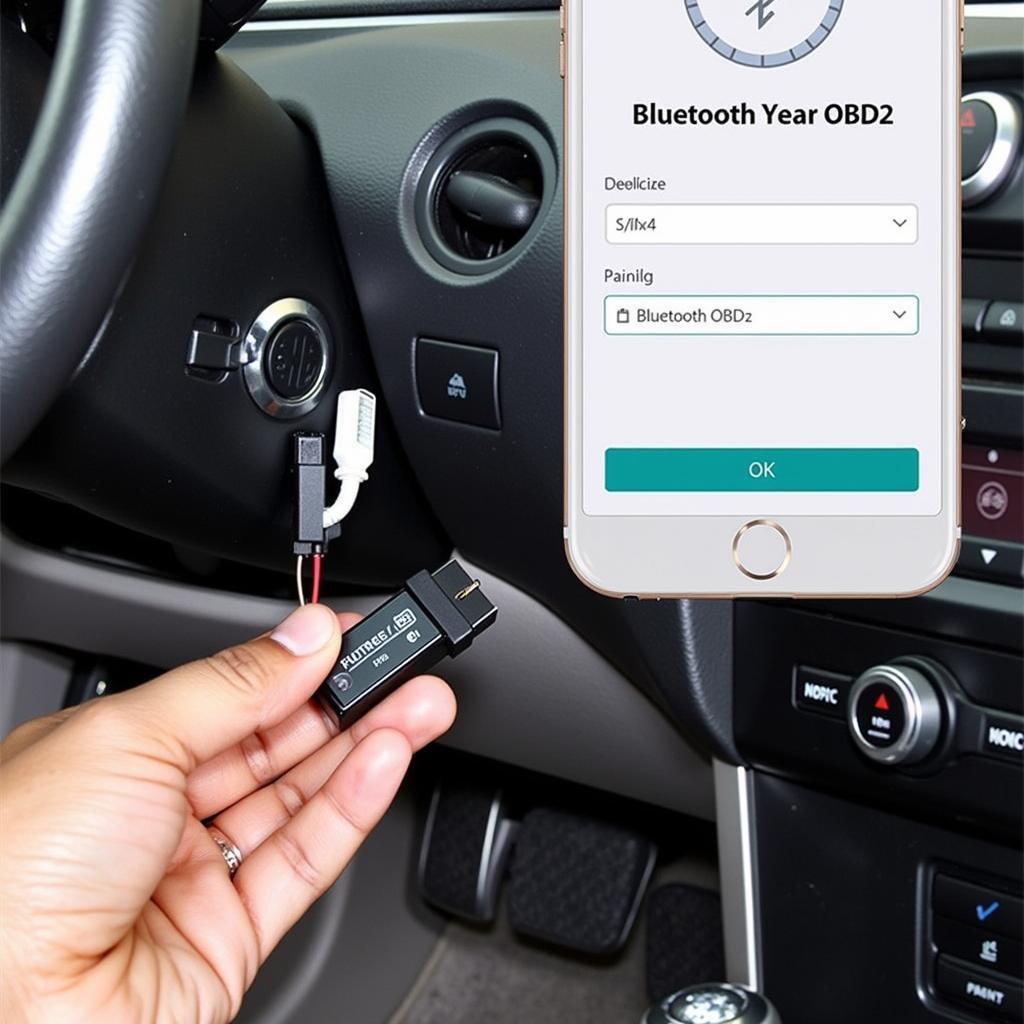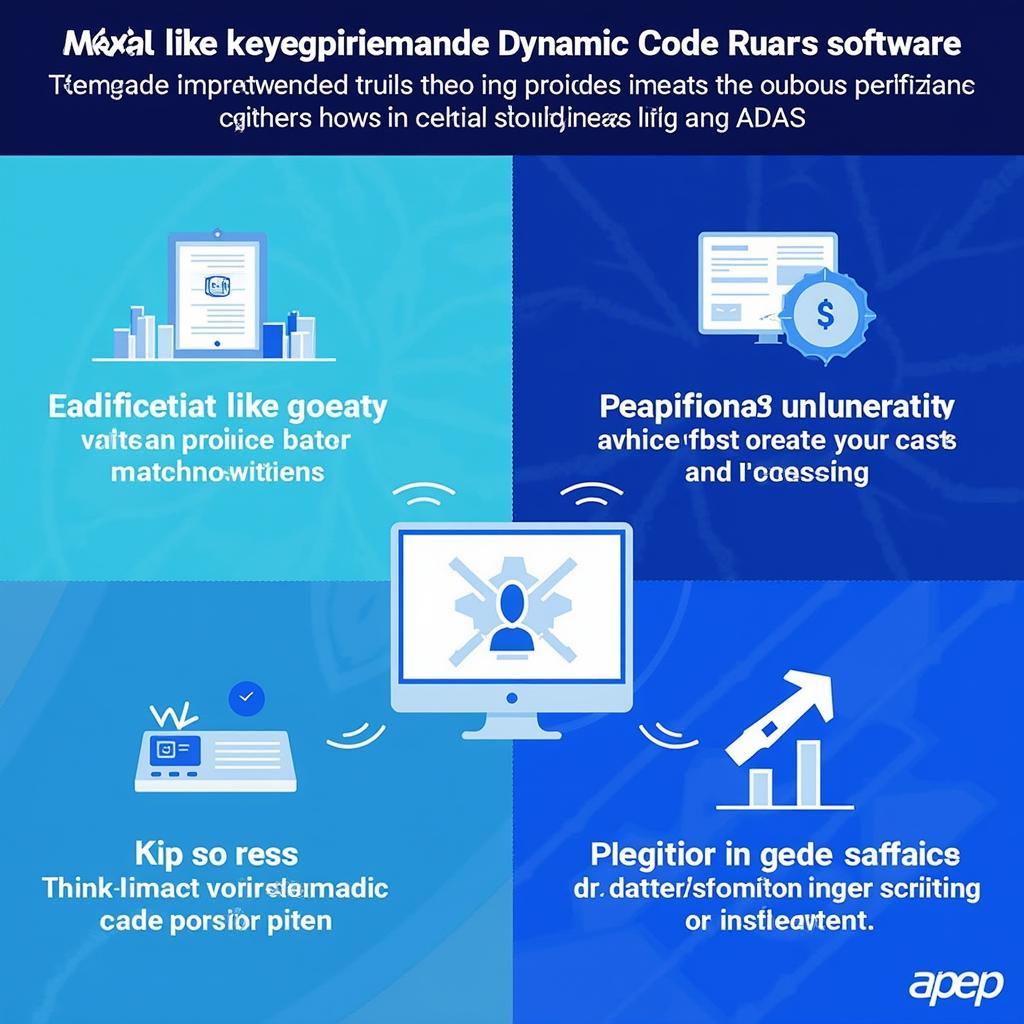Anti-lock braking systems (ABS) are a critical safety feature in modern vehicles, including your Mercedes. When the ABS light illuminates on your dashboard, it signals a potential issue within this intricate system. Ignoring this warning could compromise your safety on the road. An ABS scan tool designed for Mercedes vehicles allows you to delve into the system, retrieve diagnostic trouble codes (DTCs), and gain a clear understanding of the problem. This guide explores the world of ABS scan tools specifically designed for Mercedes, empowering you to take control of your vehicle’s safety.
Why Choose an ABS Scan Tool Specifically for Mercedes?
While generic OBD-II scanners can read basic engine codes, they often lack the depth and sophistication to interpret the complex codes generated by a Mercedes ABS system. A specialized ABS scan tool tailored for Mercedes vehicles provides access to manufacturer-specific codes, live data streams, and advanced functions, such as:
- Module-Specific Diagnostics: These tools go beyond generic engine codes to pinpoint issues within specific modules like the ABS control unit, wheel speed sensors, or hydraulic pump.
- Live Data Monitoring: Witness real-time data from various ABS components, including wheel speed, brake pressure, and steering angle, which can be instrumental in identifying intermittent issues.
- Bi-Directional Controls: Some advanced ABS scan tools allow you to command specific ABS components to activate, aiding in pinpointing faulty parts during troubleshooting.
- Coding and Programming: Certain tools enable you to perform coding and programming functions, such as adapting a new ABS control module or adjusting specific parameters within the system.
[image-1|mercedes-abs-scan-tool|Mercedes ABS Scan Tool in Use|A mechanic uses a professional-grade Mercedes ABS scan tool to diagnose an issue with a car’s anti-lock braking system. The tool is plugged into the car’s OBD-II port, and the mechanic is looking at the screen, which displays diagnostic information.]
Essential Features to Consider in a Mercedes ABS Scan Tool
When choosing an ABS scan tool specifically for your Mercedes, keep these key features in mind:
- Model Coverage: Ensure the tool explicitly states compatibility with your Mercedes model year and variant.
- Code Definition Library: A comprehensive database of Mercedes-specific DTCs with detailed descriptions will save you time and effort in deciphering cryptic codes.
- User Interface: Opt for a tool with an intuitive and user-friendly interface, whether it’s a handheld device or PC-based software.
- Data Logging and Reporting: The ability to log data and generate reports is invaluable for tracking intermittent issues or sharing information with a mechanic.
- Software Updates: Choose a tool from a reputable manufacturer that provides regular software updates to ensure compatibility with the latest Mercedes models and software versions.
Common ABS Issues in Mercedes Vehicles
Mercedes, known for its luxury and performance, can encounter ABS issues just like any other vehicle. Some common ABS problems include:
- Faulty Wheel Speed Sensors: These sensors relay wheel speed information to the ABS control unit. A malfunctioning sensor can trigger the ABS light and affect braking performance.
- Defective ABS Control Module: The ABS control unit is the brain of the system. If it fails, it can lead to complete ABS malfunction.
- Worn or Damaged Wiring: Corrosion, loose connections, or damaged wiring within the ABS system can disrupt communication between components.
- Low Brake Fluid: Insufficient brake fluid levels can affect hydraulic pressure within the ABS system, leading to warning lights and compromised braking.
[image-2|common-mercedes-abs-issues|Common Mercedes ABS Issues|A close-up image of a mechanic inspecting the ABS wheel speed sensor on a Mercedes. The sensor is covered in dirt and grime, indicating potential for malfunction. This image illustrates one of the common ABS issues experienced in Mercedes vehicles.]
Diagnosing ABS Problems: A Step-by-Step Guide
Using your Mercedes ABS scan tool, follow these steps to diagnose ABS issues:
- Safety First: Park your vehicle on a level surface, engage the parking brake, and turn off the engine.
- Locate the OBD-II Port: The OBD-II port is typically located under the dashboard on the driver’s side.
- Connect the Scan Tool: Connect your ABS scan tool to the OBD-II port.
- Turn On the Ignition: Turn the ignition key to the “on” position without starting the engine.
- Initiate Scanning: Follow the on-screen prompts on your scan tool to access the ABS module and begin scanning for codes.
- Retrieve and Interpret Codes: Note down any retrieved DTCs and refer to the tool’s code definition library or a reliable online source for detailed descriptions.
- Clear Codes: After addressing the underlying issue, use the scan tool to clear the codes from the ABS module’s memory.
Seeking Professional Assistance
While DIY diagnostics can be empowering, certain ABS issues may require the expertise of a qualified Mercedes technician. If you encounter complex codes, intermittent problems, or suspect a major component failure, it’s best to consult with a professional.
“When it comes to safety-critical systems like ABS, it’s crucial to have the right tools and expertise,” says John Miller, a veteran Mercedes technician at CARW Workshop. “A specialized ABS scan tool can save you valuable time and money in the long run by pinpointing problems accurately.”
[image-3|professional-mercedes-technician-using-scan-tool|Professional Mercedes Technician Using Scan Tool|A professional Mercedes technician in a well-equipped workshop is using a high-end diagnostic scan tool to analyze the data from a car’s ABS system. The technician is focused and attentive, demonstrating their expertise in diagnosing and resolving complex automotive issues.]
Conclusion
Investing in a quality ABS scan tool designed for Mercedes empowers you to take control of your vehicle’s safety. By understanding how to use this tool effectively, you can diagnose ABS issues, address minor problems promptly, and make informed decisions about seeking professional assistance.
For expert guidance and a wide selection of top-rated ABS scan tools, contact CARW Workshop today at +1 (641) 206-8880 or visit our office at 4 Villa Wy, Shoshoni, Wyoming, United States.






